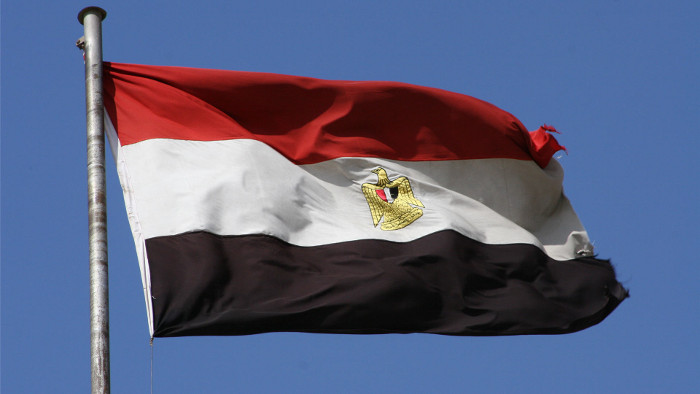For the first time since May 2022, Moody’s has downgraded Egypt’s credit rating, Egypt's long-term foreign- and local-currency issuer ratings, from B2 to B3, changing the outlook from negative to stable, Moody’s Investors Service said on Tuesday.
Moody's also revised Egypt's foreign-currency senior unsecured ratings to B3, and its foreign-currency senior unsecured MTN programme rating to (P)B3.
In its report on Egypt, Moody’s explained that the downgrade to B3 reflects the country’s reduced external buffers and shock absorption capacity while the economy undergoes a structural change towards a more export- and private sector-led growth economy under a flexible exchange rate regime.
On the country’s foreign exchange (FX), the report said that FX reserves have declined since the negative outlook assignment in May 2022 and FX liquidity buffers in the monetary system have dwindled, raising the country’s external vulnerability amid the ongoing fragile global conditions.
“The drawdown of foreign currency liquidity buffers in the monetary system in response to sharp capital flow reversals and external market disruptions in the past year have reduced the government's external shock absorption capacity. While the situation may stabilise, Moody's does not expect Egypt's liquidity and external positions to rebound quickly,” the report noted.
Liquid FX reserves have declined to $26.7 billion at the end of December 2022 from $29.3 billion at the end of April 2022, while the net foreign liability position in the monetary system has increased to $20 billion at the end of December from $13 billion in April, the report noted.
The drawdown of FX liquidity has significantly reduced coverage of upcoming medium- and long-term external debt service (principal and interest) payments amounting to $20.4 billion in FY2023/2024 (ending June) and $23.2 billion in FY2024/ 2025, in addition to $26 billion in short-term debt, amid tight external funding conditions, according to the report.
The report pointed out that the rating takes into account a gradually narrowing current account deficit to a projected three percent in FY2022/2023 from 3.5 percent in FY2021/2022. The financial support measures outlined in the fresh $3 billion loan deal secured from the IMF is also conditional upon the implementation of continued competitiveness reforms under a durably flexible exchange rate regime, said the Central Bank of Egypt on 27 October 2022.
The IMF loan extends over four years and targets covering the estimated cumulative $17 billion financing gap over the duration of the programme.
The rating also takes into consideration the financing sources the government pledged to secure under the programme, including $9 billion in state-owned asset sales to regional partners in the Gulf Cooperation Council starting FY2022/2023, in addition to $5 billion from official lenders.
The report also touched upon Egypt’s State Ownership Policy Document that came into effect this month.
“While the government's announced state-owned asset sale strategy starting this month as part of the new International Monetary Fund programme will support this structural adjustment and help generate sustained non-debt creating capital inflows to meet increased external debt service payments over the next two years, these measures will ultimately take time to tangibly reduce Egypt's external vulnerability risks,” according to the report.
It added that the government's capacity to manage the implications on inflation and social stability is yet to be established despite its clear commitment to a fully flexible exchange rate regime.
In this respect, the report highlighted that the current tight international capital market conditions, alongside higher domestic borrowing costs and social spending pressures amid the ongoing inflationary wave, were alleviated by the government's dedicated domestic funding base and the government's track record of consistently generating primary surpluses, expecting these actions to reduce the debt burden after a temporary setback.
The implementation of competitiveness reforms could enhance Egypt’s export base and support foreign direct investment inflows. This may enhance the economy's external debt carrying capacity and sustainably reduce the economy's external vulnerability risks, the report stated.
Moody's expects Egypt’s commitment to a fully flexible exchange rate will be positive over the medium term. However, the report noted, the shift to this regime is complicated at the current phase amid the high inflation and domestic borrowing costs which are being exacerbated by the sharp unwinding of previous real effective exchange rate misalignments.
“In Moody's view, this complexity raises questions about the central bank and government's capacity to manage the full consequences of the transition,” according to the report.
Since announcing the shift in the exchange rate policy in late October 2022, the Egyptian pound has depreciated by almost 35 percent against the US dollar, bringing the total depreciation applied since the onset of the Russia-Ukraine conflict to almost 50 percent, surpassing the impacts of the initial floatation of the currency in November 2016 and becoming among the largest depreciations witnessed globally, according to the report.
“While a truly flexible currency regime will foster increased price competitiveness to grow Egypt's export base and help rebalance external accounts by reducing excessive imports and demand for foreign exchange, the pass-through from higher exchange rate volatility in the future carries the risk of potentially prolonging inflationary pressures, resulting in higher than currently assumed interest rates and borrowing costs for the government, in addition to social risks in light of the population's deteriorating purchasing power,”, the report stated.
As inflation maintains its acceleration, the report predicted demand on social spending support measures to increase, reducing the government's spending flexibility.
The report also explained that high imported inflation, exacerbated by sharp currency devaluation, is fuelling higher domestic borrowing costs and inflating the value of the government's foreign currency debt, reversing previous improvements in debt affordability and the general government debt to GDP ratio.
Despite expecting debt to GDP ratio to resume its downturn after rising to 90 percent in FY2022/2023, the report projected debt affordability as measured by general government interest/revenue to decline again after temporarily increasing to over 45 percent in FY2022/2023 and FY2023/2024 from below 40 percent in FY2021/2022.




































